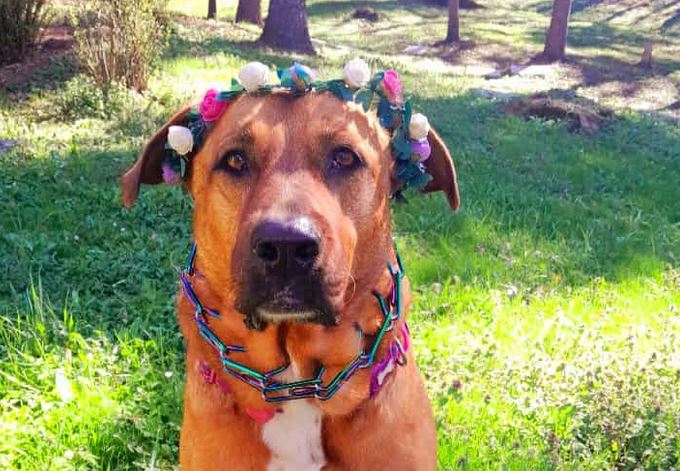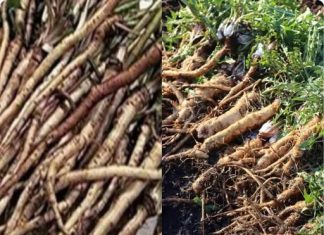In today’s article, we will talk about a common behavior seen in dogs: eating grass. Many dog owners often wonder why their pets indulge in this unusual habit, and most assume it’s because the dog has stomach problems or wants to vomit….
However, the truth is a bit more complex. Let’s dive into the reasons behind this behavior and clear up the misconceptions.
For years, people have believed that dogs eat grass when they’re feeling unwell, specifically when their stomachs are upset.

While it is true that grass can sometimes help with nausea or digestive discomfort, this is only one of the many reasons why a dog might munch on it. In fact, scientific research suggests that grass-eating behavior is more instinctual and multifaceted than we might think.
- Dogs, like their wild ancestors, carry deep-seated instincts that are ingrained in their behavior. In the wild, wolves and wild dogs often ate the stomach contents of their prey, which were rich in plant fibers. This behavior is still present in domestic dogs today, even though they are well cared for and fed high-quality commercial food. The instinct to consume plants remains part of their genetic makeup.
Fiber and Digestion: A Natural Need
Just like humans, dogs sometimes need more fiber in their diet. Grass provides that fiber, which can aid in digestion and help alleviate constipation. It can act as a natural remedy for regulating the digestive system when their regular food doesn’t do the trick. If a dog seems to seek out grass regularly, it could be a sign that their diet is lacking in essential fiber. Adding fiber-rich foods such as cooked pumpkin, carrots, or zucchini to their meals can be an effective solution.
- Another point to consider is that dogs might eat grass simply because they enjoy the taste and texture. Fresh, juicy grass can be a delicious treat for some dogs, offering a crunchy and refreshing snack that satisfies their cravings. In these cases, there’s no medical reason behind the behavior; the dog just enjoys it. It’s much like how humans sometimes crave certain foods without any real health-related need behind the desire.

The Curious Puppy and Boredom
- Young puppies are often the most curious when it comes to grass-eating. Just as children explore their world through touch and taste, puppies are exploring their environment by putting things in their mouths. Grass is just one of many things they will chew on while discovering the world around them. Similarly, older dogs who are not as active or mentally stimulated might turn to grass as a form of entertainment. If a dog is bored or feels restless, chewing on grass can become a way to pass the time.
Is Grass-Eating Always Safe?
- While eating grass is mostly harmless, there are situations where it can be concerning. If a dog consistently vomits after eating grass, or if they seem to be eating it aggressively or excessively, it’s time to pay attention. This could indicate a more serious issue, such as digestive problems or anxiety. Dogs that seek out grass multiple times a day may be experiencing a nutritional imbalance, so it’s important to address this by evaluating their diet and ensuring they are getting enough of the right nutrients.
Furthermore, eating grass on treated lawns or areas where pesticides have been used is risky. Chemicals in the grass can be toxic to dogs, so it’s essential to ensure that your pet is only eating grass from safe, untreated areas. In some cases, contact with toxic plants can also cause harm, so it’s important to be cautious of the environment where your dog is foraging.
When to Be Concerned
- There are certain signs that dog owners should watch for when their pets eat grass. If your dog consistently vomits after consuming grass, or if they display signs of pain, lethargy, or anxiety, it’s time to seek veterinary advice. Also, if you notice that your dog is eating grass in areas that have been chemically treated or where toxic plants grow, you should immediately prevent them from doing so and consult a vet.
It’s crucial to monitor your dog’s behavior and make adjustments to their diet or routine if necessary. If they are eating grass more often than usual, or if there are signs of illness, these could be signs that something needs to change in their diet or lifestyle. The goal should always be to provide a healthy, balanced environment for your pet to thrive in.

Understanding the Behavior
In most cases, however, eating grass is completely normal and even beneficial for dogs. It’s a reminder that despite being domesticated, dogs still retain some of their wild instincts. They may be using grass to fulfill a natural urge for fiber, or simply because it feels right to them. As long as they are not showing signs of illness, there’s no need to worry.
- So, next time you see your dog nibbling on some grass, take a moment to appreciate this small, natural connection they still have with their wild ancestors. It’s a simple, harmless behavior that can provide important benefits, and in most cases, there’s nothing to be concerned about.
In conclusion, grass-eating in dogs is usually a natural behavior that doesn’t require immediate concern unless it becomes excessive or is accompanied by other signs of health issues. As always, it’s important to observe your dog’s habits and ensure they are getting the proper care and nutrition. A little understanding and patience go a long way in making sure your dog remains happy and healthy.

















